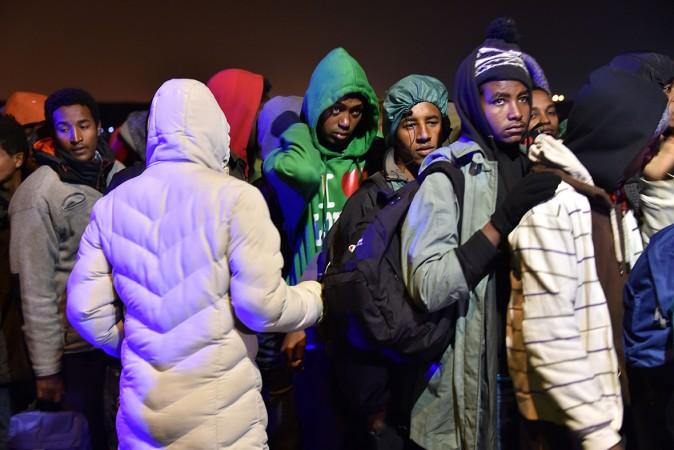
France began clearing the massive Calais "jungle" camp on Monday with hundreds of migrants queuing outside a hangar to be moved to reception centres across the nation.
As the first bus carrying the migrants moved away from the camp, the officials predicted that around 2,500 migrants would leave Calais on the first day of clearance. The Sunday night even saw a group of migrants hurling stones at the armed security forces, protesting against the dismantling of the huge migrant camp.
The Calais "jungle" camp harbours around 6,500 migrants who fled from war, hunger and poverty-stricken regions towards Europe. Many of the migrants in the camp come from countries like Syria, Afghanistan and Eritrea, these migrants had set on reaching Britain, but were camped right outside the border in Calais. The French government has announced that it is closing the migrant camp now.
"I hope this works out. I'm alone and I just have to study. It doesn't matter where I end up, I don't really care," West African nation of Guinea's Amadou Diallo was quoted as saying by Reuters.
Talking about the use of force in the camp, French Interior Ministry spokesperson Pierre Henry Brandet said that the French authorities did not need to use force to clear the migrants from the area and that the armed security forces were present at the camp on Monday for security purposes only.
There are around 1,300 unaccompanied children among the migrants and their future remains uncertain. Around 200 unaccompanied migrant children were sent to Britain last week. The Interior Ministry spokesman also said that the French government is currently discussing with the British authorities to resettle these children with no guardians in Britain.
During the moving, the migrants in the Calais camps will be segregated into different sections comprising of adults, families, unaccompanied children, elderly people, vulnerable individuals and single women.

















